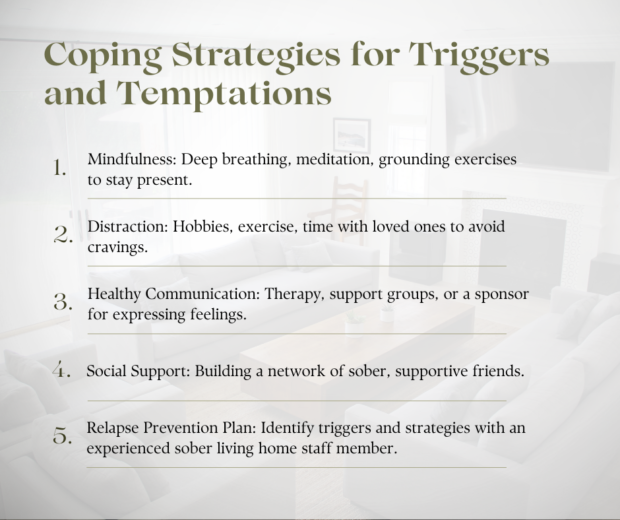Extended stays in sober living homes play a crucial role in the journey towards lasting sobriety for men. These homes provide a structured and supportive environment that encourages personal growth and the development of healthy routines. With accountability and peer support, recovery individuals can build the life skills and coping mechanisms needed to overcome challenges and prevent relapse. Extended stays in sober living homes offer a pivotal step towards a lifetime of recovery and well-being for men seeking lasting sobriety.
Benefits of Extended Stays in Sober Living Homes
Extended stays in sober living homes offer a multitude of benefits for men seeking lasting sobriety. These homes provide a supportive and structured environment, allowing individuals to develop healthy routines and life skills.
Accountability and peer support in sober living homes help individuals navigate challenges and prevent relapse. By immersing themselves in a recovery-focused community, men can experience personal growth, build resilience, and establish a foundation for long-term sobriety. Extended stays in sober living homes truly offer a transformative and empowering experience on the journey to lasting recovery.
Success Rates of Extended Sober Living Programs
Extended sober living programs have shown significant success rates in promoting lasting sobriety for men.
| Statistic | Source | Description |
| Average length of stay: 254 days (ORS) & 166 days (CSLT) | National Institutes of Health (NCBI) | Both lengths surpass the recommended minimum of 90 days for optimal benefit. |
| Reduced substance use: Compared to usual care, individuals in recovery homes showed significantly lower rates at a two-year follow-up. | National Institutes of Health (NCBI) | This indicates a potential association with sustained abstinence. |
| Improved mental health and reduced criminal justice involvement: 18-month follow-up data showed positive outcomes regardless of referral source. | National Institutes of Health (NCBI) | This suggests broader benefits beyond just substance use. |
| Increased employment and income: Research suggests a positive correlation between recovery housing and improved economic outcomes. | Substance Abuse and Mental Health Services Administration (SAMHSA) | This highlights the potential for increased self-sufficiency. |
| Decreased healthcare utilization: Studies suggest a potential cost-effectiveness of recovery housing due to reduced reliance on healthcare services. | National Institutes of Health (NCBI) | This points towards potential economic benefits for healthcare systems. |
Structure and Support in Extended Stays in Sober Living Homes
Sober living homes provide a structured and supportive environment for men in recovery. With consistent daily schedules, residents can establish healthy routines that promote sobriety.
These homes also offer peer support and community building opportunities, allowing individuals to form lasting connections with others who understand their struggles. The support provided in sober living homes plays a crucial role in helping men maintain their sobriety and navigate the challenges of recovery.
Daily Routine and Accountability in Sober Living
In a sober living home, maintaining a daily routine is essential for lasting sobriety. By establishing a structured schedule, individuals can cultivate healthy habits and avoid falling into old patterns that may lead to relapse.
This includes regular attendance at support group meetings, therapy sessions, and engaging in activities that promote self-care and personal growth.
The accountability within the sober living community helps individuals stay on track and hold themselves responsible for their recovery journey.
Peer Support and Community Building in Sober Living Environments
In sober living environments, peer support and community building play a paramount role in the recovery journey.
By connecting with others who have similar experiences and goals, individuals can find comfort, understanding, and encouragement to stay on the path of sobriety.
The sense of camaraderie and shared struggles fostered within a sober living community provides a network of support that extends well beyond the home’s walls.
Through group activities, shared responsibilities, and open communication, individuals can form meaningful friendships and build a network of support that reinforces their commitment to lasting sobriety.
Choosing the Right Sober Living Home
When selecting a sober living home, it’s essential to consider factors that contribute to a supportive and conducive environment for lasting sobriety.
Location is key, as being in a peaceful and safe area can enhance the recovery process. Amenities, such as fitness facilities and recreational spaces, can promote a balanced and healthy lifestyle.
Equally important is the staff, who should be compassionate, experienced, and dedicated to supporting individuals in their recovery journey.
Researching and visiting different sober living homes ensures finding the right fit for long-term success.
Location and Amenities to Consider
When choosing a sober living home, the location plays a crucial role in the recovery process.
Look for a peaceful and safe area, away from triggers and temptations.
Additionally, consider the amenities offered by the facility. Does it have fitness facilities, recreational spaces, or outdoor areas for relaxation?
These amenities can promote a balanced and healthy lifestyle, contributing to your overall well-being and long-term sobriety.
In our men’s sober living homes in Denver and Los Angeles, our staff has been through recovery, and we offer a peaceful and safe environment to ensure long-term sobriety.
Consider the Staff in Sober Living Facilities
The staff in sober living facilities play a crucial role in providing support and guidance to residents. They are trained professionals who understand the challenges of addiction and recovery.
They create a safe and nurturing environment, offering counseling, accountability, and assistance in developing life skills.
The staff members are empathetic and supportive, helping residents navigate the ups and downs of their journey towards lasting sobriety.
Their presence ensures that residents have the necessary resources and support to maintain their recovery.
At Spear Recovery, our staff understands the struggles of addiction, and we’ve all been through recovery. That said, we provide unique insights to help in your journey to sobriety.
Impact on Mental Health and Well-being
Living in a sober living home has a profound impact on men’s mental health and well-being. The structured and supportive environment fosters a sense of stability and promotes positive mental health practices. Residents have access to counseling services, group therapy, and activities that enhance self-care and emotional well-being. This focus on mental health helps individuals build resilience, cope with stress, and develop healthy habits that support lasting sobriety.
Promoting Positive Mental Health in Extended Sober Living Programs
In extended sober living programs, promoting positive mental health is a priority. These programs offer various services such as counseling, therapy, and activities that encourage self-care and emotional well-being. By nurturing positive mental health, individuals in recovery can build resilience, develop healthy coping strategies, and cultivate a positive mindset that supports lasting sobriety. Taking care of one’s mental health is essential for long-term success in maintaining sobriety.
Overcoming Challenges and Relapse Prevention
One of the biggest challenges in the recovery journey is the possibility of relapse.
However, with the right strategies and support, individuals can overcome these challenges and prevent relapse. It’s important to identify personal triggers and develop healthy coping mechanisms to manage cravings and temptations.
This could include engaging in positive activities, practicing mindfulness, and seeking support from therapists, support groups, and sponsors.
By focusing on relapse prevention techniques and building resilience, individuals in extended sober living programs can navigate these challenges and maintain their sobriety for the long term.
Coping Strategies for Triggers and Temptations

When faced with triggers and temptations, individuals in extended sober living programs can employ effective coping strategies to navigate these challenges. Some strategies include:
- Mindfulness: Practicing mindfulness techniques, such as deep breathing, meditation, and grounding exercises, can help individuals stay present and focused, reducing the impact of triggers.
- Distraction: Engaging in positive activities, such as hobbies, exercise, or spending time with supportive friends and family, can redirect attention away from cravings and temptations.
- Healthy Communication: Expressing thoughts and emotions in a healthy way through therapy, support group meetings, or talking to a sponsor can provide individuals with the support and guidance they need during difficult times.
- Developing Social Support: Building a network of sober friends and supportive individuals can help individuals feel connected and less alone, providing a strong support system during times of temptation.
- Creating a Relapse Prevention Plan: Working with therapists or counselors to develop a relapse prevention plan can empower individuals to identify potential triggers and develop strategies to avoid them, ensuring a higher likelihood of maintaining sobriety.
By implementing these coping strategies, individuals can effectively manage triggers and temptations, increasing their chances of long-term sobriety and overall well-being.
Final Thoughts: The Key to Lasting Sobriety for Men is Extended Stays in Sober Living Homes
Now, extended stays in sober living homes offer a transformative and empowering experience for men seeking lasting sobriety.
These homes provide a supportive and structured environment, promoting personal growth and accountability.
With the benefits of peer support, healthy routines, and relapse prevention techniques, men can develop the necessary tools to navigate life in recovery successfully.
Consider an extended stay in a sober living home as the pivotal step towards a lifetime of recovery and well-being. Now, if you’re looking for extended stays in sober living homes for men, Spear Recovery has extended sober living programs in Denver and Los Angeles.
Success Stories and Testimonials from Extended Sober Living Participants
Sources:
- National Institutes of Health (NCBI): https://www.ncbi.nlm.nih.gov/pmc/articles/PMC10563008/
- National Institutes of Health (NCBI): https://pubmed.ncbi.nlm.nih.gov/21305907/
- Substance Abuse and Mental Health Services Administration (SAMHSA): https://store.samhsa.gov/sites/default/files/pep23-10-00-002.pdf
